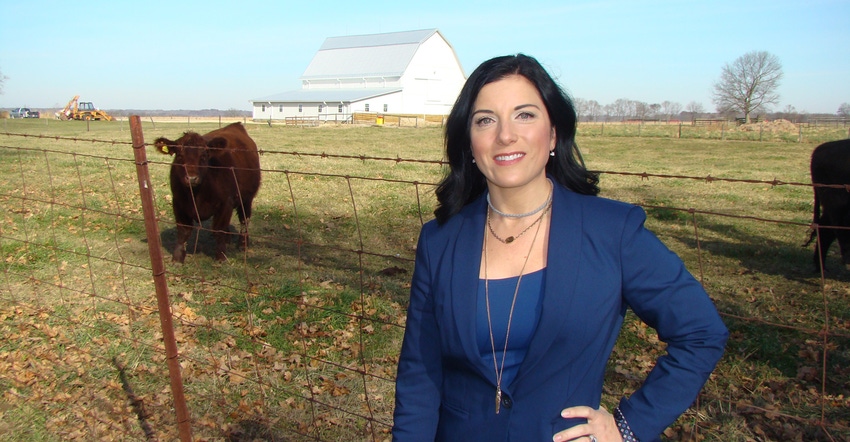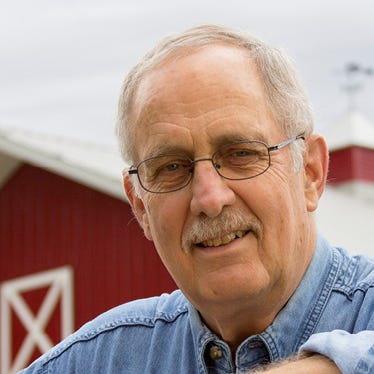January 12, 2018

Polly Dobbs focuses her Peru, Ind., law practice on farm estate and succession planning. Earlier in her career, she saw the heartbreak and long-term negative effects that can result from a failure to communicate with family members and get a good plan down in writing. In this interview with Indiana Prairie Farmer, Dobbs offers thoughts on developing a plan, which she says can make things much easier for everyone involved.
How common is the problem of farm families fighting over money? Unfortunately, it’s the rule, not the exception. It’s basically human nature to fight about money. For most people, it springs from greed, which lies just below the surface. Then when one little event shifts that surface of that family, it comes out.
How can good succession plans help farm families? Earlier estate and succession planning was about saving death taxes that could sink a family farm operation in transition between generations. That landscape has changed, and now it’s much more about the “soft issues”— saving family relationships and keeping the farm operation intact. I’ve seen more farm operations destroyed by families fighting over money than taxes ever did. A good plan means that the family’s still having Thanksgiving and Christmas dinner together. That’s a success.
Are there other ways the process can help families? Succession and estate planning is like a giant jigsaw puzzle with many parts that need to coordinate. Besides helping to simplify the process, we frequently see potential problem areas that our clients might miss. Plus, we catch a lot of “little” things that people don’t think about, like a giant life insurance policy still payable to an ex-spouse, or a young farmer who put his mother as his beneficiary on his assets before he got married.
Why are families reluctant to plan? No one wants to think about their own mortality or disability. Most of my clients are still very focused on building, growing and running their businesses now, rather than thinking about life’s unpleasant things. Next is what I call the “ostrich syndrome.” Planning seems so overwhelming that clients just stick their heads in the sand rather than deal with it. Finally, if a client suspects there will be conflict, they don’t even want to start.
What if a family gets along great? Is a plan necessary? Yes! Because you want to keep it that way. Writing down your intentions in a succession and estate plan is a great way to help ensure that your kids keep getting along.
What if a family already has difficulties? If it’s bad now, you can count on it getting worse later. These are family disputes that wind up in tens or hundreds of thousands of dollars in legal fees. I’m not saying it’s an easy process to work through, but in these cases, having a good plan is crucial. There are counselors and consultants who can help with intrafamily communication and what I call the “softer” issues of family difficulties.
Is it expensive to set up a plan? In today’s world with high land and machinery values, a simple “sweetheart will” — where everything is left to the spouse and equally to all children upon the spouse’s death — is probably not good enough. I tell my clients that my services are an investment now in a good plan that will prevent potential huge fees and taxes later, and the litigation fees that accompany nasty probate disputes and contesting of wills. Good legal services should more than pay for themselves.
How does one get started? The first step is an accurate, up-to-date personal financial statement, with fair market value of assets, how assets are titled, along with current beneficiary designations. Also, ask yourself, “If I died tomorrow, what would I want?” When someone wants to make an initial appointment, I send out forms to help them get the wheels turning and start getting organized.
Where can I find an ag law attorney in my area? You may not always be able to find an attorney in your immediate area who’s knowledgeable in ag succession planning, and you may have to travel outside your county. You can find attorneys or get recommendations from members of the Purdue Extension Succession Planning Team.
Any closing thoughts? Don’t keep secrets from your attorney, even the “dirty laundry.” It’s so much easier for everyone if you take care of these things while you’re “still breathing and still have all your marbles.” Review your plan every five years, and change it if necessary. Finally, know that a good plan will help you sleep better.
How a succession plan can help
Polly Dobbs grew up on a rolling, picturesque, multigenerational Miami County, Ind., farm overlooking the Mississinewa River. She now lives on the farm, once owned by relative and famed composer Cole Porter. He may have been the ultimate absentee landlord, alternately living in Paris, Vienna and New York City.
Despite her farm’s and family’s colorful histories, Dobbs, a 10-year 4-H member and former Indiana Angus Princess, grew up doing chores like most other farm kids. She credits the work ethic she learned as a farm kid with helping her become a successful attorney.
“While my friends were lying around their pools in bikinis, I was clipping cattle and doing other chores,” she recalls. “Those experiences really set you apart from every other city slicker, and the work ethic can’t be overestimated. Now when I talk with farm families, it’s like, ‘Oh, you know what we’re talking about.’ ”
By the time she went to college, Dobbs was ready to leave the farm in her rear- view mirror. Later, fresh out of law school, she landed a job with a big Indianapolis law firm, where she wound up doing estate and succession plans for business owners and executives. In doing so, she quickly learned how contentious money can be for families.
Years later, with her parents in declining health, Dobbs and her husband, Steve, had an opportunity to return to the farm, but not before applying what she’d learned in her Indy law practice.
“I’d seen plenty of families fight about the family business, and I was determined that wasn’t going to be us,” says Dobbs, the youngest of five siblings.
Before she agreed to return to the farm, where her husband is now the manager, she insisted on having good succession and estate plans in place.
Using another attorney to avoid any conflicts of interest, Dobbs’ parents set up a plan that split the farm equally among the five siblings, but allows Dobbs to have the voting shares and day-to-day operational control of the farm. Her four out-of-state siblings have nonvoting shares, except for major decisions.
Of her journey that led her away from the farm, then back to it, plus a thriving ag law practice that helps farm families stay intact, Dobbs says: “That’s how I found my niche. This is exactly what I’m supposed to be doing.”
Boone writes from Wabash, Ind.
About the Author(s)
You May Also Like






